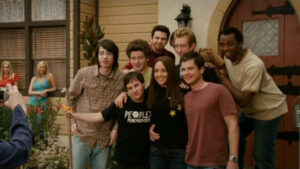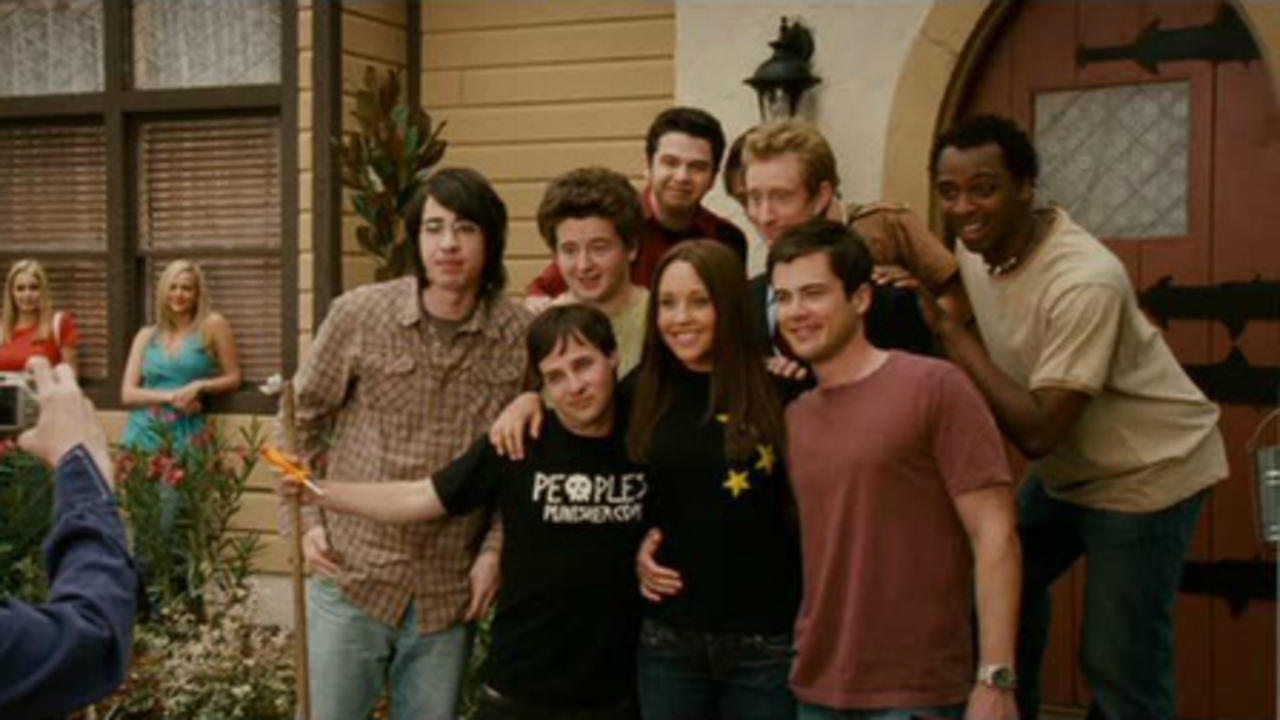Sydney White
Posted on January 20, 2008 at 3:14 pm
B| Lowest Recommended Age: | Middle School |
| MPAA Rating: | Rated PG-13 for some language, sexual humor, and partying |
| Profanity: | Some crude language |
| Alcohol/ Drugs: | Drinking |
| Violence/ Scariness: | Tense confrontations, comic peril |
| Diversity Issues: | Diverse characters, some stereotyping |
| Date Released to Theaters: | September 21, 2007 |
This updated fairy tale has some clever riffs on “Snow White” but never makes use of the considerable talents of its star, Amanda Bynes.

But Sydney does not meet the standards of the Kappa president, Rachel Witchburn (Sara Paxton). She is not blonde, she is not a size 2, and, worst of all, Sydney fails to recognize Rachel’s supreme domination over just about everything on campus — especially the handsome Prince Matt Long as Tyler Prince, the campus McDreamy.
Rachel boots Sydney out of the sorority in a humiliating public ceremony. There is only one place left on campus that will take her in, the ramshackle house occupied by the campus outcasts. There are seven of them. One has allergies and sneezes a lot. One is an exchange student with jet lag who sleeps all the time. One is bashful. One is grumpy. All are nerdy. And Rachel has a plot to tear their house down so her family can build a shiny new rec center for sorority and fraternity members only.
Echoes of the Snow White story provide the movie’s brightest moments. Rachel checks constantly to make she is still considered the fairest in the land, not in a magic mirror but in the campus “hot or not” website. The poisoned apple? An Apple laptop with an important homework assignment gets infected with a virus. And of course in the big moment Sydney is awakened by a kiss from the Prince.
It is less cute when a nasty trick has the seven dorks naked at a campus party and when they march past Rachel with a mean-spirited “Hi, Ho!” It makes it harder for us to stay on the side of the good guys when they descend to the terminology of the bad guys. And it goes overboard on the geek factor; drawing less from fairy tales than from “Revenge of the Nerd”-style caricatures. For a movie that is supposed to be all about inclusion and respecting the dork within each of us, it has a lot of fun at their expense.
Bynes is captivating despite a role that does not give her much to do but display tomboyish good spirit behind some really unfortunate hair and make-up. She looks trapped in a 1970 Yardley ad, all fake tan, shag haircut, and pale eye shadow. She can make a retort sound spirited, not snappish, as when she tells Rachel that she doesn’t “speak priss.” Her best moments are with Long, who has a great smile and a rare ability to listen to what other performers are saying without thinking he has to be doing something every second he is on screen. Newcomer Jack Carpenter as Sneezy/Lenny brings warmth and humanity to a thinly written role as the most sociable of the dorks.
But director Joe Nussbaum does not trust his performers, the material, or the audience. He keeps the tempo so synthetically sitcom-y you expect to hear a rim shot and a laugh track. Everything is exaggerated. Every joke is an elbow in the ribs. Like Rachel, he is checking his “hotness” every couple of minutes. And like Rachel, his score could use some improvement.
Parents should know that this movie has some vulgar humor and strong language (references to “hos,” b-word), implied nudity, and a drinking game at a party. A strength of the movie is its emphasis on inclusion and the importance of treating diverse people respectfully, and Sydney reaches out to all groups on campus, from the Hassids to the band geeks, cross-dressers, and Goths.
Families who see this movie should talk about when they most felt like outsiders or dorks and what they can do to make sure that people around them feel included and appreciated for who they are.
Families who enjoy this movie will also enjoy other takes on classic fairy tales like Ella Enchanted and Shrek
. Barbara Stanwyk and Gary Cooper co-starred in an earlier update of Snow White, Ball of Fire
.

